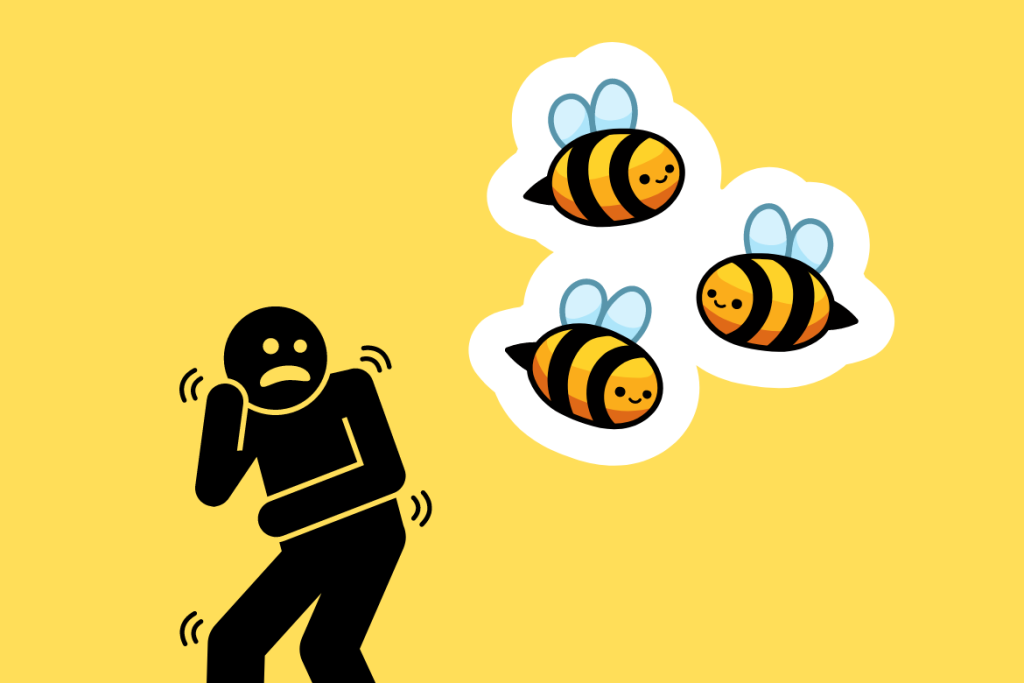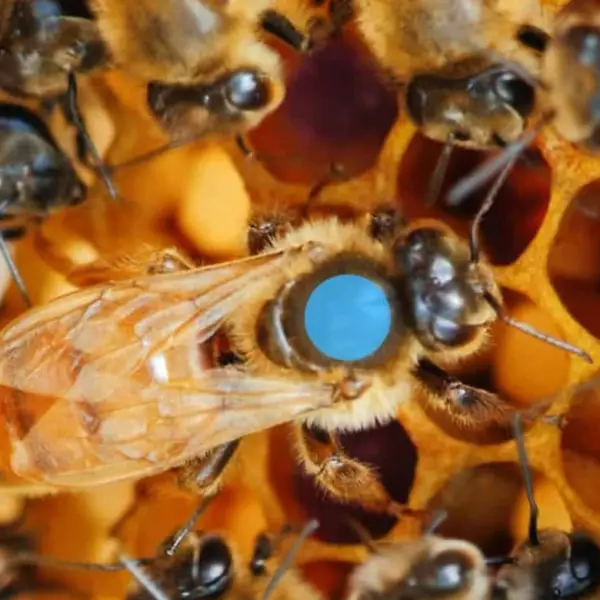Living with apiphobia, the fear of bees, can turn even the thought of a buzzing bee into a heart-pounding ordeal. This specific phobia manifests as an intense and irrational fear, triggering symptoms similar to a panic attack upon encountering these winged insects. The fear often extends beyond the immediate threat, influencing life decisions and prompting avoidance behaviors. Overcoming bee phobia involves understanding its roots, acknowledging its impact, and taking practical steps, such as psychotherapy and exposure therapy, to reclaim a buzz-free peace of mind.

Understanding Bee Phobia:
Specifically classified as a specific phobia, bee phobia involves an overwhelming and irrational fear of an object or situation that is usually not inherently dangerous. Despite the minor discomfort associated with a bee sting, individuals with this phobia experience a fear level that far exceeds the actual threat. The anxiety is not limited to direct encounters; even the mere thought of facing a bee or encountering its representation can trigger heightened levels of unease and apprehension.
Symptoms of Bee Phobia:
The encounter with a bee for individuals with bee phobia can unleash symptoms reminiscent of a panic attack, marked by a rapid heartbeat, dizziness, sweating, and a pervasive feeling of losing control. The fear is not confined to the moment; it permeates life choices, prompting individuals to go to great lengths to avoid potential bee encounters. This avoidance behavior might even extend to influencing significant decisions, such as choosing a place to live, as the fear of encountering a bee can wield a substantial impact on various aspects of daily life.
Root Causes of Bee Phobia:
The roots of bee phobia are diverse and can be traced to various factors. Direct traumatic experiences, witnessing negative encounters with bees, and exposure to misinformation through media portrayals can all contribute to the development of this specific phobia. Additionally, evolutionary traits may play a role, as humans might possess a predisposition to fear species perceived as potentially dangerous. Understanding the multifaceted origins of bee phobia is crucial in devising effective strategies for overcoming this fear and promoting a more rational perspective toward these essential pollinators.
Diagnosing Bee Phobia:
To diagnose bee phobia, healthcare professionals adhere to specific criteria outlined in the DSM-5, which include the presence of persistent and excessive fear, avoidance behaviors, and interference with daily life. If you suspect that you may be grappling with this phobia, seeking guidance from a healthcare professional is crucial. Through consultation, a proper diagnosis can be established, paving the way for personalized treatment plans and effective strategies to manage and overcome the impact of bee phobia on your daily life.
Treating Bee Phobia:
Conquering bee phobia is entirely achievable through a range of effective treatments. Psychotherapy, with a focus on Cognitive Behavioral Therapy (CBT), stands out as a common and successful approach. In the context of bee phobia, exposure therapy plays a pivotal role, involving a controlled environment and a fear ladder. This method allows individuals to systematically and gradually confront their fear of bees, fostering a step-by-step journey towards overcoming the anxiety associated with these buzzing insects.
Coping Strategies and Lifestyle Changes:
Taking proactive steps on your own can be empowering in managing bee phobia, even alongside professional help. Acquiring knowledge about bees, understanding their behavior, and dispelling myths can demystify the fear. Incorporating relaxation techniques, such as deep breathing and mindfulness, into your routine provides practical tools to cope with anxiety. Joining support groups facilitates sharing experiences and learning from others dealing with similar fears. Embracing a healthy lifestyle, including regular exercise, not only promotes overall well-being but can also contribute to reducing anxiety levels associated with bee phobia. Combining self-help strategies with professional guidance creates a comprehensive approach towards conquering the fear of bees.
Helping Children Cope:
Addressing your child’s fear of bees requires a thoughtful and supportive approach. Start by acknowledging their fear and providing age-appropriate education about bees to demystify the perceived threat. Emphasize a commitment to overcoming the fear together, fostering a sense of teamwork and security. For practical interventions, employ distraction techniques like deep breathing or play soothing soundtracks to redirect their focus during moments of anxiety. Creating a supportive environment and actively participating in their journey to overcome the fear can be crucial in helping children navigate and manage their fear of bees.



